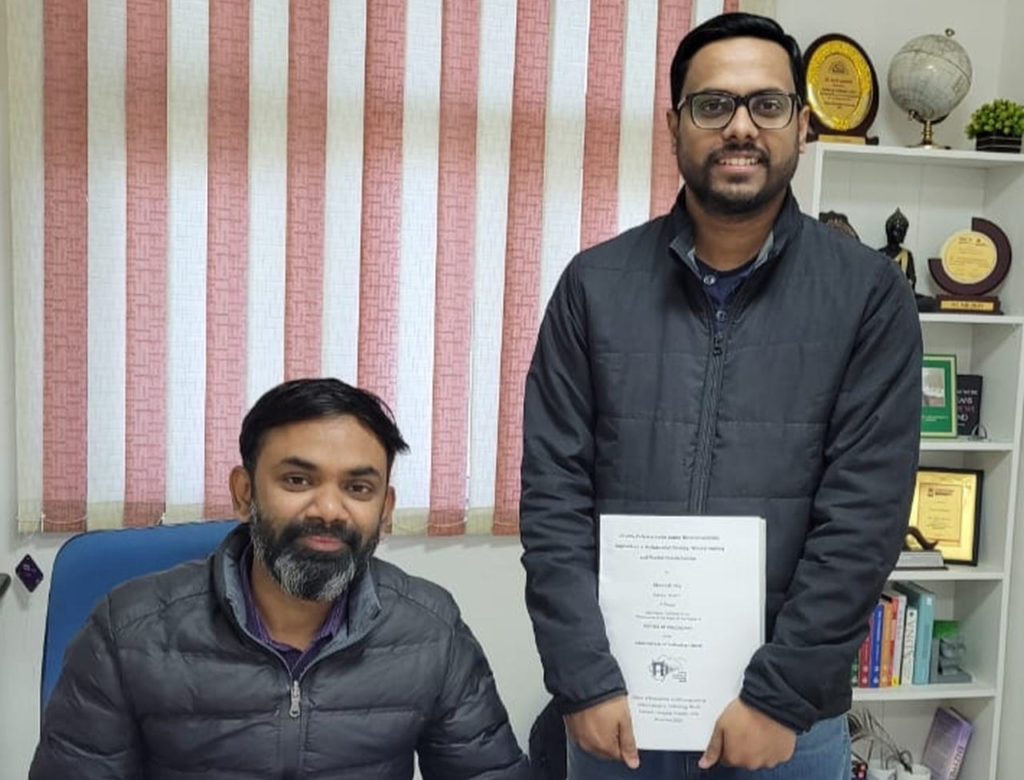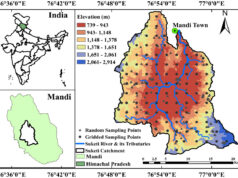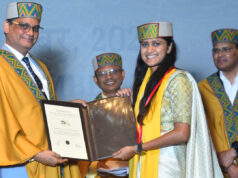Mandi – In a groundbreaking development that promises to transform the safety and efficacy of medical implants, Indian Institute of Technology Mandi (IIT Mandi) researchers have unveiled a revolutionary antibacterial coating that could prevent implant-associated infections. The innovative solution, developed by a team led by Dr. Amit Jaiswal, Associate Professor at the School of Biosciences and Bioengineering, IIT Mandi, utilizes cutting-edge sugar-coated nanosheets as implant coatings, providing a potent defense against infections.
Medical implants have long played a crucial role in various medical and reconstructive procedures, offering effective treatment options for a wide range of conditions. However, the formation of biofilms on these implants over time can lead to recurring infections and inflammation, ultimately causing tissue damage and complications for patients.
To address this persistent problem, the research team has developed a biocompatible, non-leaching and contact-based antibacterial coating for implants, using quaternary pullulan functionalized MoS2 (MCP) glycosheets. These cationic MCP glycosheets have been seamlessly applied to the surfaces of polydopamine-modified stainless steel and polyvinyl fluoride substrates through a straightforward electrostatic interaction process.
One of the key achievements of research is that the MCP coating exhibited outstanding antibacterial efficacy, effectively eradicating more than 99.5% of Escherichia coli and Staphylococcus aureus bacteria. Even more impressively, this antibacterial performance remained stable for over 30 days without any leaching from the implant surfaces. Moreover, MCP-coated implants have been proven to be entirely safe, inducing neither acute nor sub-chronic toxicity in mammalian cells during both in-vitro and in-vivo testing.
Dr. Amit Jaiswal, the lead researcher, explained, “The developed coating is a unique combination of quaternized pullulan and MoS2 nanosheets, providing a potent defense against infections, while the easy and stable coating process ensures no leakage from the implant surfaces. Crucially, this solution has been proven to be entirely safe for human cells in vitro and in vivo in a mice model, making it a promising advancement in the field of medical implants.”
This pioneering approach not only offers exceptional protection against infections but also promises simplified and secure implementation, potentially transforming the safety and efficacy of implant technology. The MCP coating has demonstrated its ability to prevent Staphylococcus aureus colonization on stainless steel implants in a mouse model of implant-associated infection.
As a result of these exciting findings, the researchers are currently in discussions with orthopedic hospitals to move forward with clinical trials, bringing this revolutionary technology one step closer to benefiting patients worldwide.
The research was conducted by Dr. Amit Jaiswal from IIT Mandi, in collaboration with Dr. V. Badireenath Konkimalla from the National Institute of Science Education and Research, Bhubaneshwar. This innovative solution has the potential to revolutionize the field of medical implants, offering hope for safer and more effective medical procedures in the future.














